Stormont recall: Third attempt to fully restore NI Assembly fails
- Published
- comments
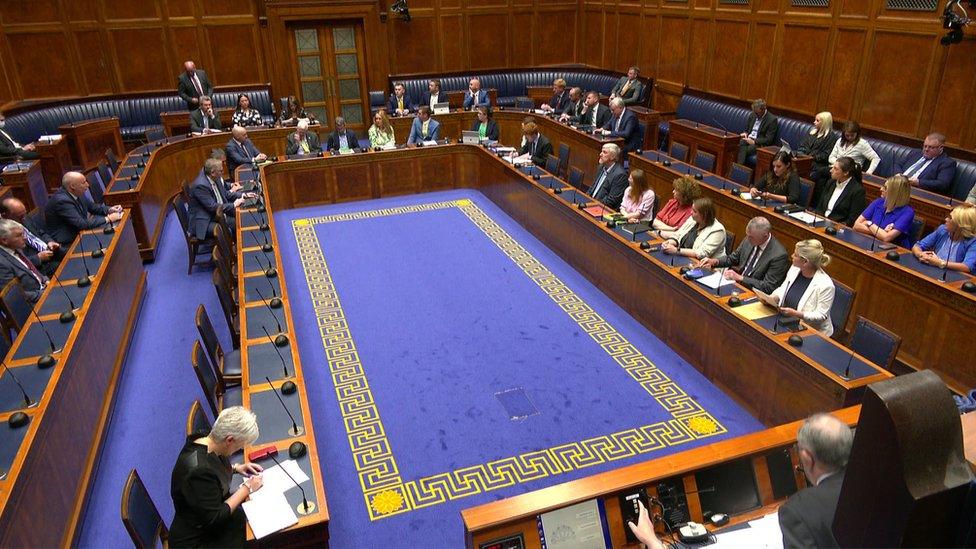
Assembly members are meeting following a recall petition, spearheaded by the SDLP
A third attempt to elect a new Speaker at Stormont and allow the Northern Ireland Assembly to function fully again has failed.
Assembly members met following a recall petition, spearheaded by the SDLP, which wanted a debate on the cost of living crisis.
The DUP refuses to nominate a Speaker over issues with the Northern Ireland Protocol.
The DUP leader said recalling the assembly would not solve the problem.
But the SDLP said "basic governance" must return.
Sinn Féin's Michelle O'Neill says the DUP is "punishing the public" by its "refusal to govern"
The Protocol keeps Northern Ireland in the EU's single market for goods, preventing a hard border with the Republic of Ireland.
But it means checks on some items which come into Northern Ireland from other parts of the UK, creating a trade border in the Irish Sea.
Unionist parties are opposed to it, saying it undermines Northern Ireland's position in the UK.
Controversial UK government legislation aimed at giving the government powers to override parts of the Protocol is making its way through Westminster.
Ulster Unionist Party leader Doug Beattie nominated party colleague Mike Nesbitt and the SDLP's Matthew O'Toole nominated his colleague Patsy McGlone as Speaker.
The DUP's Brian Kingston says the recall of the Stormont assembly "was stunt politics"
However, both bids failed.
Northern Ireland Secretary Shailesh Vara said he was disappointed that the assembly had failed to elect a speaker.
He tweeted, external: "People expect and deserve the Executive to be formed as soon as possible to address issues affecting everyone in Northern Ireland, including the rising cost of living."
Earlier, Sinn Féin deputy leader Michelle O'Neill said the DUP's "continued boycott of these institutions and their failure to accept the democratic outcome of the election" were denying people "the representation which they are entitled to and which they deserve".
"It's totally unacceptable, it is untenable and it cannot continue," she added.
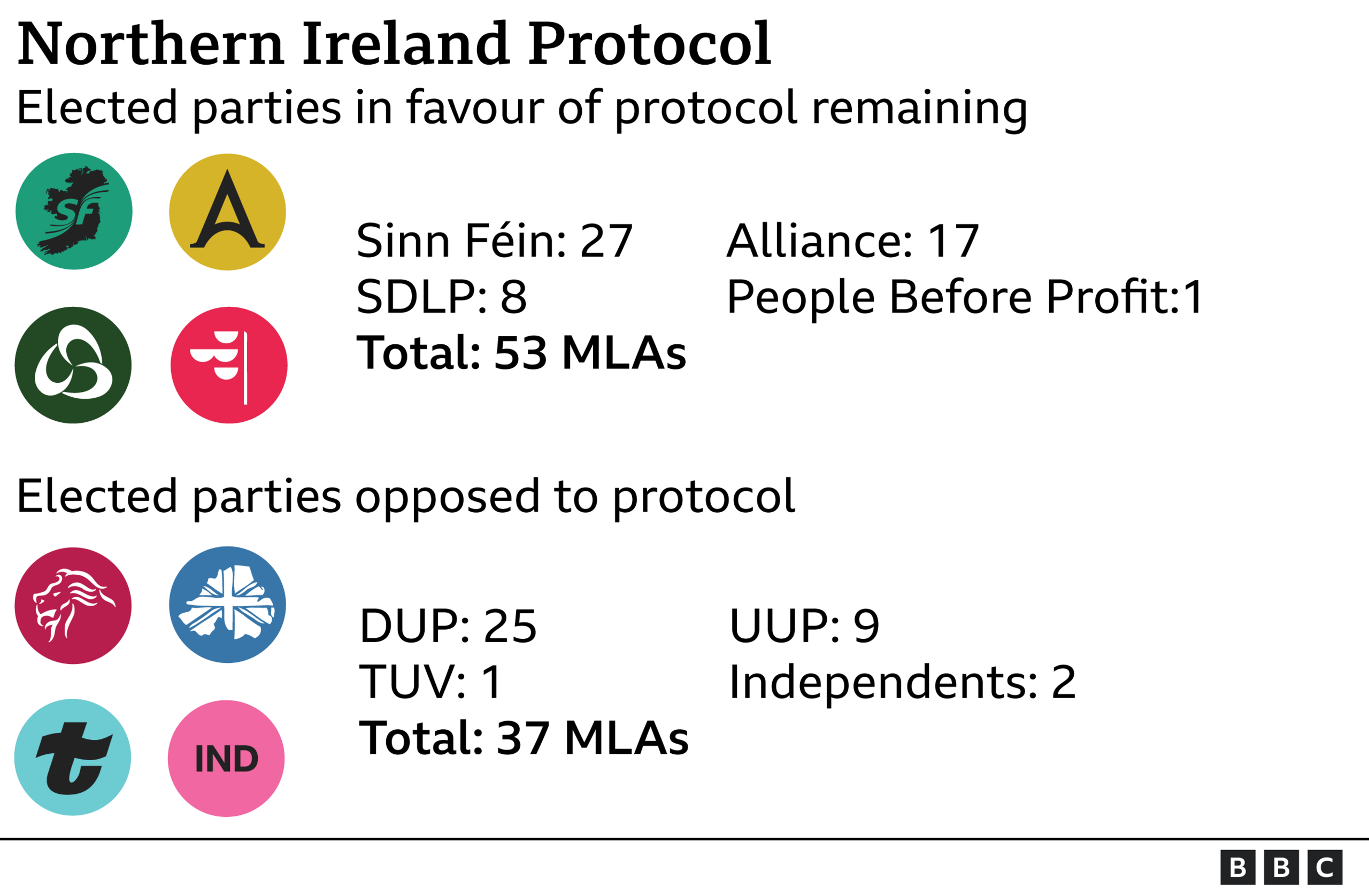
Most politicians elected to the Northern Ireland Assembly want the protocol to remain
She said the DUP were the "only party that are blocking and preventing the executive being formed, preventing the executive meeting that would allow us to distribute money to help workers and families".
"So let me say to you, even at this late hour today, workers need help, families need help, businesses need help and you're continuing to punish the public that we're elected to serve by your continued refusal to govern with the rest of us."
Democratic Unionist Party (DUP) assembly member Brian Kingston dismissed the assembly recall as "stunt politics".
"These proceedings are not a genuine attempt by the parties opposite to restore the political institutions, rather they demonstrate a wilful disregard for the views of unionists and the principle of power sharing itself in Northern Ireland," he said.
Mr Kingston said the Northern Ireland Protocol had caused a "deep fracture in our politics".
He said the party would be "condition-led and not calendar-led".
At the same time, he made it clear that when its conditions were met, the DUP would be prepared to nominate a deputy first minister.
The Stormont institutions have been in flux since February when the DUP withdrew from the first minister role in protest over the part of the 2019 Brexit deal known as the protocol.


Amid all of the words spoken during the 90-minute debate, one adjective stood out: "undiminished".
The DUP's Brian Kingston said that if his party was to return to the power-sharing executive at Stormont, the Westminster bill to override the Protocol must emerge from Parliament "undiminished", in other words, without any amendments.
It is clearly a DUP pre-condition.
The other appears to be a commitment from the next prime minister that once he or she gets the power to override the Protocol, it will be used immediately.
Diminished means reduced, lessened, made weaker.
That is certainly the current state of the assembly, as all eyes now focus on Westminster and Downing Street.

Since then, there has been an assembly election and two recall petitions.
Sinn Féin became the largest party in the Northern Ireland Assembly for the first time following May's election, with 27 seats, pushing the DUP into second place.
The election cemented a majority for assembly members who accept the Protocol, including Sinn Féin.
However, overall unionists still hold the most seats in the assembly.
During Wednesday's debate, the SDLP's Matthew O'Toole pointed to the cost of living.
"How long do they [people] have to wait, struggling to put food on the table, struggling to afford the cost of school uniforms and apprehensive about this winter?
"They said the Protocol Bill's passage would lead to a graduated response, it's passed the Commons, what now?"
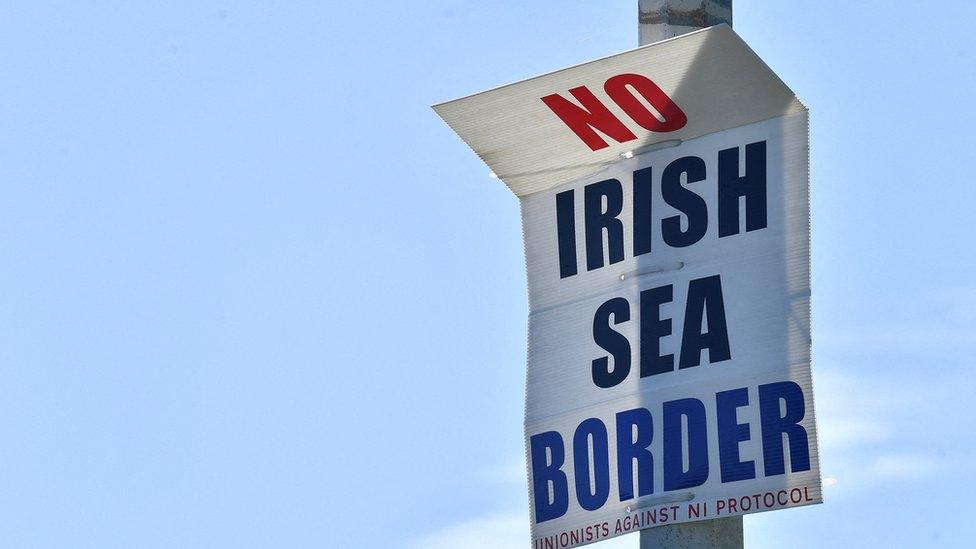
Unionist parties in Northern Ireland are all opposed to the Northern Ireland Protocol
Alliance assembly member Patrick Brown called for reform to "put an end to ransom politics".
He said it was no longer tenable for one party to be able to block the formation of an assembly and executive.
"Until this place can operate in a mature and democratic fashion, our ability to deal with situations like the cost-of-living crisis will continue to be curtailed," he said.
Traditional Unionist Voice (TUV) leader Jim Allister said many assembly members did not want to face "reality" that the Protocol was incompatible with Northern Ireland's constitutional position as an "integral part of the United Kingdom".
"The very same people who yesterday and in recent days were effusive in respect of Lord David Trimble, consciously and deliberately ignore the very telling of Lord Trimble about the Protocol when he said that the Protocol has ripped the heart out of the Belfast Agreement," he said.
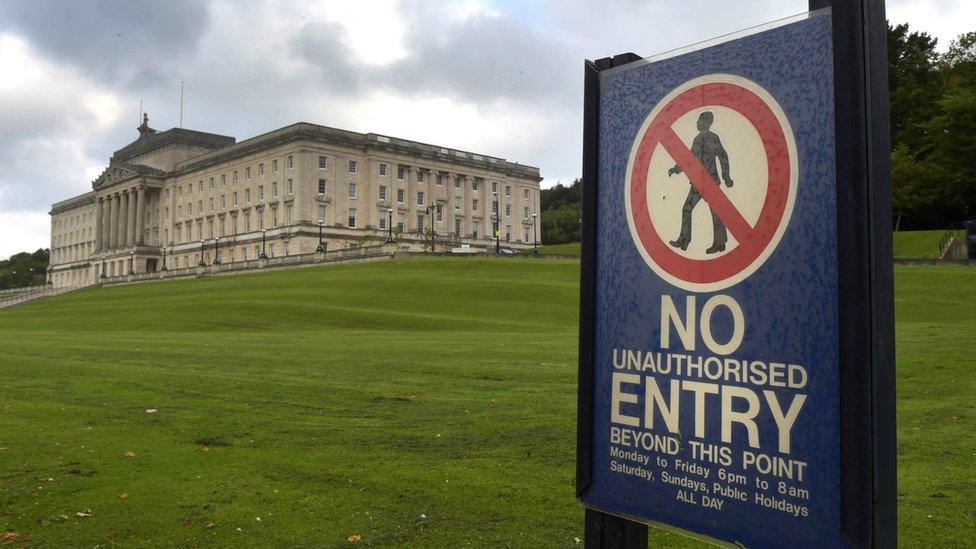
Stormont uses a system of government known as power sharing
People Before Profit's Gerry Carroll said the DUP had shown themselves to be "completely and utterly self-serving in their approach to politics".
"They are wilfully ignoring the plight of the vast majority of people here who are struggling to keep their heads above water due to spiralling costs and political inaction," he said.
Earlier, DUP leader Sir Jeffrey Donaldson said he could not provide a timetable on when the Stormont Executive would be restored.
"The sooner we can get to a solution on the Protocol, the sooner we will see the cross-community consensus restored that is necessary to operate the political institutions in Northern Ireland," he told BBC Radio Ulster's Good Morning Ulster.
Sir Jeffrey said he recognised getting a "fully-functioning executive and assembly was important for everyone in Northern Ireland" but he wanted to ensure the foundations for that were "sound".
The comments come as the National Institute for Economic and Social Research (NIESR) said the Northern Ireland Protocol had given the region's economy a temporary boost.
An assembly Speaker can only be elected with support from a majority of unionist and nationalist members.
Without a Speaker in place, there can be no nomination of first and deputy first ministers, meaning the assembly cannot function.
The DUP has previously said it wants to see "clear progress" on the government's controversial protocol bill in Parliament first, before it would consider supporting the election of a Speaker.
The bill passed the House of Commons in July but now must be debated in the House of Lords.
- Published20 July 2022
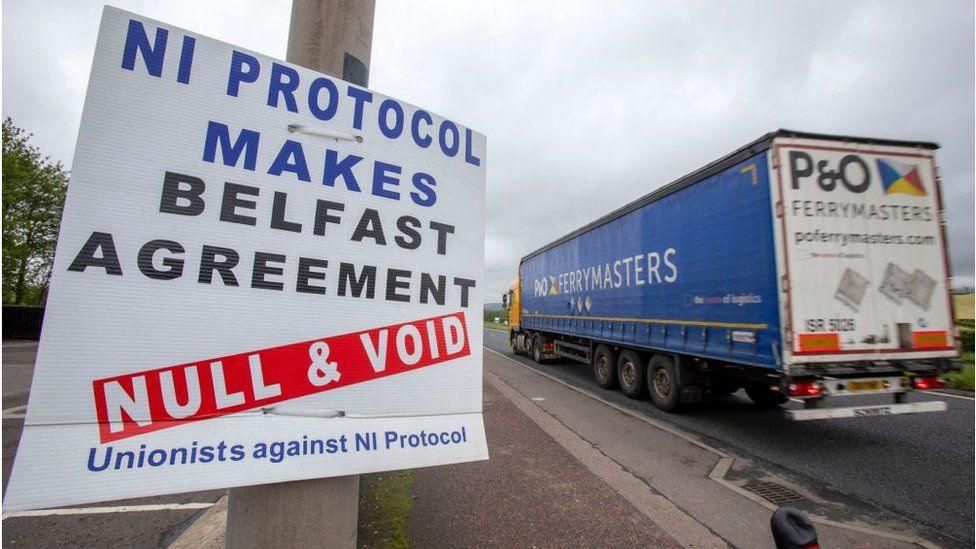
- Published30 May 2022
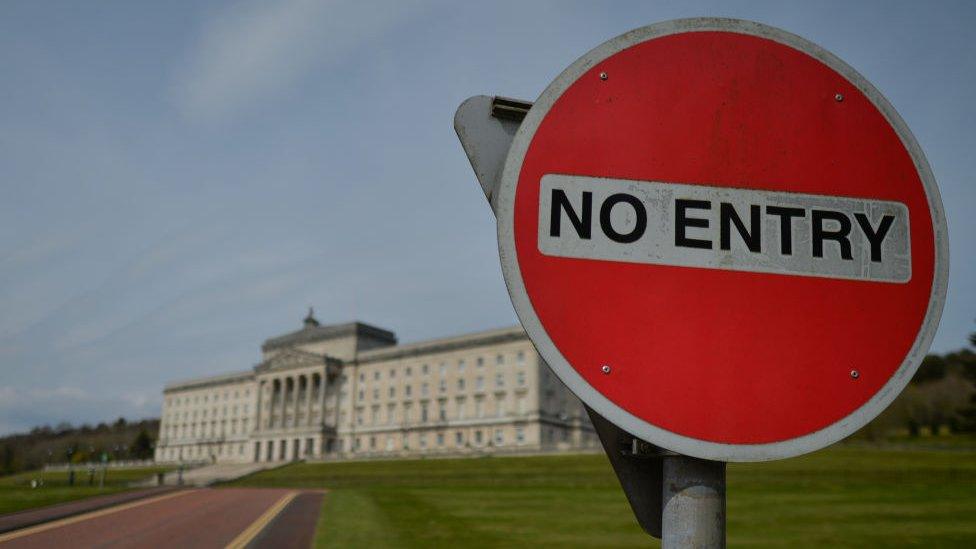
- Published2 February 2024
